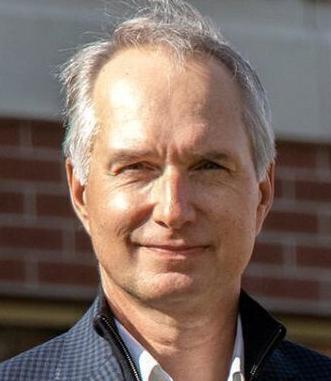When do you know it’s time to walk away? Whether it’s a job, a home, a relationship, or a project, the most consequential decisions we make in life are saying “yes” or “no.” And it is often not clear what the answer should be.
I’ve been thinking about this question a lot lately since I’m reaching that age when two trajectories converge. As we get older our physical and cognitive abilities decline even as time and experience open the door to more opportunities.
It occurred to me that we give lots of advice to young people: advice about what sports to play, what clubs to join, where to go to school, what subjects to study, what kind of job to get, what to look for in a friend.
But the decisions about what to do, where to do it, and who to do it with never end. It’s just that we tend to get lazy or complacent and stop thinking about them as much. And that means we often make bad decisions.
People are also reading…
The challenge of making good decisions is complicated by the fact that in most respects people reach their peak years much earlier than they think.
The ability to learn a second language starts to decline after age 8. Athletic ability, depending on the sport, tends to peak in the late 20s or early 30s. Creative ability is more complicated, with conceptual forms of creativity (like abstract thinking and problem solving) peaking in the mid-20s and experimental creativity (like scientific research or design) tending to peak in the 50s.
About the only thing one continues to get better at into one’s sixth and seventh decades is vocabulary. That probably explains why I do more talking than anything else at my weekly basketball game. It’s the only thing I can do in the gym that doesn’t hurt.
The last time I broke my nose playing basketball I didn’t get much sympathy at home. My wife just said, “Aren’t you getting too old for this?” That was 15 years ago, and the answer was “yes.” I was getting too old for it then, and I’m much too old for it now. But I have a hard time quitting a sport that I enjoyed for so many years. And even though I know I have to say goodbye at some point, it’s hard to know exactly when that should be.
The truth is, most of us don’t like to think about change, but refusing to acknowledge something doesn’t make it go away. It just makes dealing with it harder.
There are, however, a couple of general rules to follow when deciding to leave.
The first rule is: leave on a good day.
A friend gave me this advice years ago. He said, “Leave on a good day and you will always remember it as a good place; leave on a bad day and you never really leave.” In my experience, that seems true whether talking about a home, a workplace, a relationship, or a pastime.
The second rule is: have something to go to.
It’s not enough to say goodbye to something; we should also be looking forward to what we are going to do next. This seems to me the key to managing any kind of change successfully — not running away but running toward. It means always having some kind of goal in mind. As we get older, the goals may not be as physically or cognitively demanding, but they bring their own sets of challenges and rewards.
I got a call the other day from my 87-year-old mother who recently moved to her new home in a senior living community. As usual, she jumped right into the topic she called about. “Do you know about watersheds?” she asked. I hesitated for a bit, trying to figure out the context for such a question. “Everybody lives in a watershed,” she went on enthusiastically. “I had heard the word before, but I didn’t know it meant.”
It reminded me of the character in a play by Moliere who discovers that he has been speaking prose all his life. (I didn’t mention that to my mother.)
She told me about a retired truck driver she was talking to at lunch and their conversation about the Mississippi River watershed. And then she said something utterly delightful: “Isn’t it wonderful that I can still learn new things at my age.”
I am still learning new things from my mother. The latest is that getting older doesn’t have to be a process of repeatedly saying goodbye to the things we used to do; it can also be a process of repeatedly saying hello.








